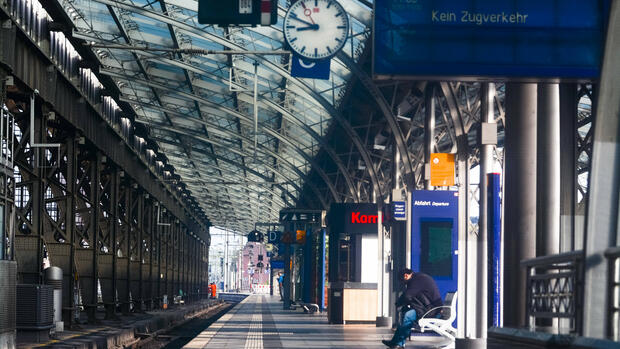The EVG had already twice called for strikes in the collective bargaining dispute.
(Photo: IMAGO/NurPhoto)
Berlin According to a media report, the railway union EVG is threatening new, even more severe work stoppages at the railways. “We could paralyze the railway for weeks,” said negotiator Cosima Ingenschay of the “Süddeutsche Zeitung”.
Two warning strikes should have been enough to get a negotiable wage offer from Deutsche Bahn. “But the railways are obviously not interested in serious negotiations,” said Ingenschay, who is conducting the negotiations with Kristian Loroch for the union.
According to Ingenschay, the next warning strikes will last longer. “The effects obviously have to be more massive so that it hurts the employer.” It is conceivable that the EVG would start campaigns in different regions one after the other. Or that train attendants and other professional groups go on strike in turn.
But these are all still conceptual models. “The railway system is so fragile that if we take out a few signal boxes, everything will collapse. The new strikes could affect several days,” said Ingenschay.
“It is the railways that are provoking the new strikes,” Ingenschay told the newspaper. The railway ignores the preconditions of the union. For example, the railways must agree in advance to set the statutory minimum wage of twelve euros in the collective agreement.
EVG demands twelve percent more wages
Both parties to the conflict accuse each other of not being willing to negotiate. Bahn Human Resources Director Martin Seiler described the Deutsche Bahn offer on Wednesday as the highest in its history. The offer includes ten percent more wages for lower and middle incomes, eight percent more money for higher incomes and an additional 2850 euros inflation compensation premium for everyone.
The EVG demands twelve percent more wages, but at least 650 euros more per month. The union negotiates for around 230,000 employees at around 50 train and bus companies. On Friday, she largely paralyzed rail traffic throughout Germany with an eight-hour warning strike.
More: Why the railway wage conflict is stuck – and new strikes are imminent
